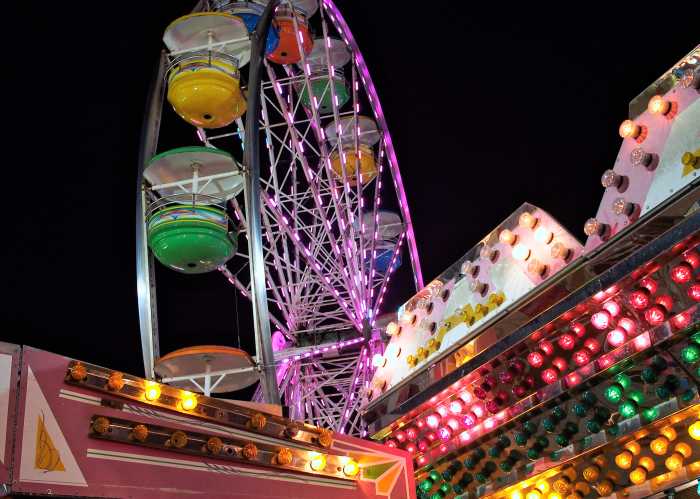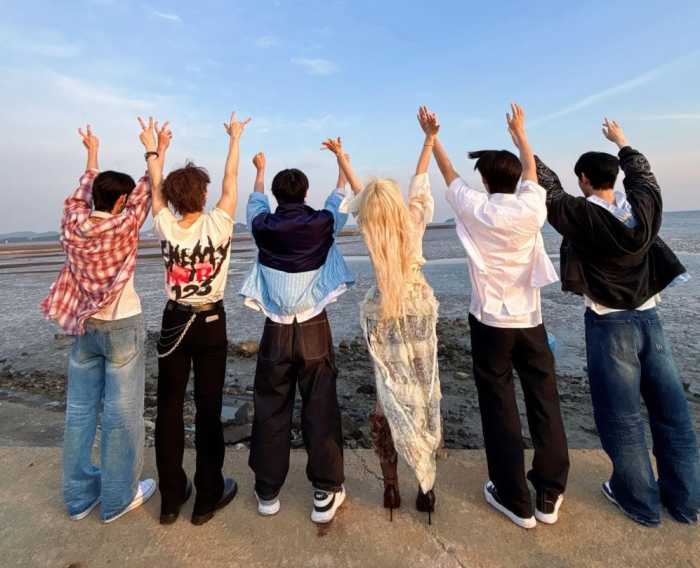
For actress Gina Rodriguez, signing on to play the lead role in Netflix’s romcom movie "Someone Great" was more than a move to branch out from her starring role in The CW’s award-winning "Jane The Virgin."
It was the opportunity, as a Latina, to have a seat at the table — a seat that, in the heyday of the romcom genre, was usually inhabited by white women. The story of a woman falling in and out of love, of crushing after the popular jock, of experiencing a first heartbreak was exclusively told by the Sandra Bullocks and Julia Roberts of the world. It wasn’t until Jennifer Lopez proved to executives that she could open a successful romcom that we began to see Latinas in these coveted roles, but romcoms are still overwhelmingly heteronormative and white — the needle hasn’t moved much since "The Wedding Planner."
Rodriguez, who also executive produced the film under her I Can & I Will Productions banner, recognizes the significance and wants to make room for different experiences in these mainstream spaces. "As a Puerto Rican woman, this is the first romcom I’ve ever been offered. As a Puerto Rican woman, I’ve never been told I’m allowed to tell a love story. I want to be the woman that’s in love and falls out of love. … I just want to tell a love story. I want to be the one that gets to tell it for once in my life."
In Netflix’s "Someone Great" (written and directed by Jennifer Kaytin Robinson), Gina plays Jenny, a music journalist who, after landing her dream job at Rolling Stone, wants one last epic night with her girlfriends (played by DeWanda Wise and Brittany Snow). Her feelings about moving through the world as a 20-something, turning 30, and embarking on the biggest job of her career, all culminate with the utter turmoil she feels as her 9-year relationship with her boyfriend (Lakeith Stanfield) implodes.
amNewYork sat down with the star to talk about the film, available on Netflix on April 19.

One of the most popular shticks of romcoms in the ’90s and early millennia showed young women going through these aesthetically pleasing transformations to get the guy. This is not that kind of romcom at all [spoiler alert!], but she chooses herself, which is a really powerful message for young women.
Yaas! It was the propaganda, girl. It was used to make us squirm and to make us feel uncomfortable about ourselves. No more of that! There’s no need for more of that. I love me a good romcom and I just dug this one. [It was] the way Jennifer [Kaytin Robinson] changed that perspective and [also] I’ve chosen myself so many times.
And there’s a real struggle in letting go, especially when it’s your first love. I appreciated Jennifer showing that pain in a way that feels personal. What was it like working with her on her first feature film?
She’s outstanding. From the beginning of getting the script, I was like, ‘"The girl is a genius." Just how she writes the women as layered and multidimensional. They’re “together” but also a hot mess because [those things] are not mutually exclusive. Jenny, my character, has her s–t in control but sometimes she makes really raunchy, terrible decisions. These [qualities] are all very real to me and they just make it so that you can finally project a woman that is complicated and grounded in some kind of reality within these spaces of a romcom, which are usually a little bit more fantastical.
You’re playing with a huge chunk of time with flashbacks. How was it developing those snapshots of life and that growth?
I went to NYU, so there were a lot of personal things to draw from. I went to college with DeWanda [Wise], and me and her have been best friends since we were 17. We know those New York streets like the back of our hands and we have shared a lot in common with these women and the crazy that they went through. So for me it was very easy to pull back on my own personal experiences, which I don’t necessarily always do, to be honest, so it was nice to play a little bit more of a down-to-earth, relatable character to myself.
I appreciated the representation of diversity in this film. The film focused on these diverse women and they’re all going through their own journeys. None of them felt like they were playing to a stereotype or had any tokenism about them. They were able to be their unique selves. Can you speak to that?
It was really ingrained in the writing. Jennifer wrote these multidimensional women that any woman could relate to. Any woman could be any of them and so when I read the script, I was like, "Here we go!" Now we got something where we can sprinkle in all these different voices, all these different phases, all these different perspectives and nobody can combat it. You can’t tell me that none of us can’t relate to each and every one of these women. And then as actors we can shuffle up and play each other because we know these women so very well.
This is something that we do in our production company, period, the end, but also it was important for Jennifer that we were making sure we were casting across the board. … To have the blessing of producing and helping put in names to put in these new spaces. Also, to be like, “Here, this story has never told by this person. This person seldom gets to look like this. Let’s do that.” Because we all live these things. We all have fallen in love. We all want health and success — it’s just about time that we see new faces tell these same stories.
What kind of agency are you able to have as a producer?
What’s great is that there’s a real thought into it now. Having a voice in the room and being someone that can say, "What about this?," because I am a new perspective, because I grew up differently than the people in the room. It’s very powerful and you don’t take it for granted. My love language is to be able to give people opportunity. Why wouldn’t the lesbian woman be a black woman? We just try to speak up as much as we can because you’re always combating your own fear of speaking up too, you know? But you do it and then you get to create something like this and be a part of it. It’s the greatest feeling in the world.
These two friends keep it real with her, and they’re her greatest champions. Who are your greatest champions inside and outside of the industry?
My publicist Liz [Mahoney] and my producing partner Emily [Gipson]. Jennie Urman, the writer of "Jane The Virgin," is a huge champion. She’s the one that gave me my directing career and believed that I can tell stories outside of just this specific one as an actor. Everybody we’ve been working with at Netflix has really been championing our projects. They really allow us the space to create and to speak up. We will continue to be able to speak up because of gaining that confidence. And then, my sisters that support every decision that I make and give me a really great sounding board and hold me accountable. They make sure that I remember that my s–t does stink.
This film feels inherently New York. What are some of your New York memories?
I lived in New York for 10 years, and it was a transitional time because I moved when I was 17. The scenes in Washington Square Park, everything you saw Jenny go through, I walked those streets for all those years. I have memories of just acting a fool in New York, skateboarding all over New York, almost getting killed on a bicycle many-a-time. Going to Finnerty’s on 14th and Second Avenue when I was in college was the best place. That was the place that a lot of the raunchiness I went through was at. [Laughs]. It was weird because it was an Irish pub. What’s this Puerto Rican doing in this Irish pub? But New York is my jam, you know?




































